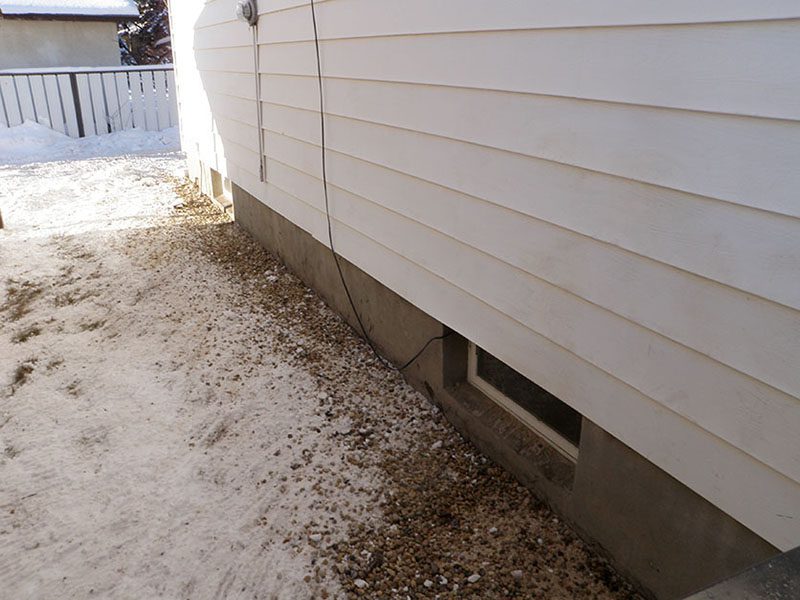How Foundation Underpinning Affects Home Insurance Rates and Claims
Foundation underpinning represents a significant structural improvement that affects home insurance considerations. Abarent Construction, with over 35 years of experience in foundation repair and underpinning services, provides expert foundation repair solutions that meet insurance requirements in Edmonton. Home insurance providers carefully evaluate foundation work to determine coverage terms and rates.
Key Takeaways About Foundation Underpinning Insurance Impact
- Insurance companies require specific documentation and engineering reports for foundation underpinning projects.
- Property values typically increase after successful foundation underpinning completion.
- Regular foundation inspections help maintain favorable insurance rates.
- Soil stability tests influence insurance coverage decisions for underpinned foundations.
- Different structural reinforcement methods affect insurance assessment outcomes.
- Insurance providers evaluate foundation underpinning based on construction quality standards.
- Preventive maintenance records demonstrate responsible property care to insurance companies.
Structural Reinforcement Methods Influence Coverage Assessment Results
Insurance companies evaluate structural reinforcement techniques based on established industry standards. Professional foundation reinforcement methods receive more favorable insurance consideration than experimental approaches. Insurance providers specifically look for engineering certification requirements and proper installation documentation when assessing risk levels for different foundation strengthening approaches.
Professional Engineering Reports Drive Policy Decisions
Engineering documentation quality determines insurance coverage terms and conditions. Structural assessment documentation must include detailed foundation inspection reports and construction method verification. Insurance companies place significant weight on engineering compliance requirements and professional liability coverage when evaluating engineering certifications.
Essential Documentation Requirements for Insurance Providers
- Detailed structural assessment reports from certified engineers
- Complete photographic documentation of underpinning work
- Soil stability test results and analysis
- Building permit and compliance certificates
- Contractor licensing and insurance documentation
- Material quality certification records
- Maintenance and warranty information
Home Insurance Providers Evaluate Foundation Underpinning Projects
Insurance evaluation criteria for underpinning work follows specific assessment timelines. Different underpinning methods affect insurance coverage based on project documentation standards and claim submission guidelines. Insurance providers typically require comprehensive coverage verification processes that include detailed documentation of all work phases.
Insurance Claim Success Rates Vary By Property Type
Property classification guidelines influence insurance claim outcomes significantly. Residential property assessment methods differ from commercial building evaluation procedures. Historic building considerations and multi-unit structure analysis require additional documentation for successful claims.
Property Value Changes Impact Premium Adjustments
Premium adjustment factors reflect changes in property value after foundation improvements. Foundation repairs increase property values and influence insurance rate calculations. Insurance companies use specific property appraisal methods to determine coverage cost analysis after completing value improvement documentation.
What Determines Post-Improvement Insurance Costs?
Premium calculation methods vary among insurance providers based on improvement value assessment. Property enhancement evaluation and rate modification guidelines determine new premium levels. Cost reduction documentation helps minimize insurance cost increases after foundation work.
Ground Stability Testing Affects Insurance Decisions
Soil stability assessment requirements form a crucial part of insurance coverage decisions. Environmental factors affect foundation stability and influence geological survey requirements. Insurance companies rely on specific geotechnical evaluation methods and stability verification processes to assess risk.
How Do Soil Conditions Influence Coverage Terms?
Soil composition analysis directly affects insurance coverage terms. Seasonal ground movement monitoring and environmental impact assessment help determine coverage conditions. Insurance providers evaluate geological condition reports and soil stability requirements when setting policy terms.
Regular Foundation Inspections Generate Insurance Benefits
Inspection frequency requirements help maintain favorable insurance rates. Professional foundation inspection services provide necessary structural assessment criteria and condition monitoring protocols. Insurance companies value comprehensive assessment documentation requirements and proper certification guidelines.
Preventive Maintenance Records Lower Insurance Costs
Maintenance documentation requirements demonstrate responsible property care to insurers. Insurance providers consider preventive care schedules and maintenance verification processes when determining rates. Proper maintenance history documentation and repair tracking systems help secure better coverage terms.
Abarent Construction offers comprehensive foundation underpinning services that meet insurance requirements in Vancouver. The company maintains detailed documentation and provides professional engineering reports that satisfy insurance provider requirements.
